detail profile slavoj c5 bdi c5 beek

Slavoj Žižek
Slavoj Zizek
atau dikenal sebagai
Riwayat Hidup
A Slovenian continental philosopher and critical theorist working in the traditions of Hegelianism, Marxism and Lacanian psychoanalysis.
He has made contributions to political theory, film theory, and theoretical psychoanalysis.
Žižek is a senior researcher at the Institute of Sociology, University of Ljubljana, Slovenia, and a professor at the European Graduate School.
He has been a visiting professor at, among others, the University of Chicago, Columbia University, London Consortium, Princeton, New York University, The New School, the University of Minnesota, the University of California, Irvine and the University of Michigan.
He is currently the International Director of the Birkbeck Institute for the Humanities at Birkbeck, University of London and president of the Society for Theoretical Psychoanalysis, Ljubljana.
Žižek uses examples from popular culture to explain the theory of Jacques Lacan and uses Lacanian psychoanalysis, Hegelian philosophy and Marxist economic criticism to interpret and speak extensively on immediately current social phenomena.
Info Pribadi
Peran Yang Di Mainkan Slavoj Žižek
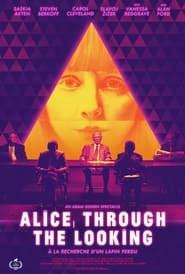 What happens when after the Wonderland...
What happens when after the Wonderland...Alice, Through the Looking 2021
What happens when after the Wonderland, Alice finds herself in the post-Brexit United Kingdom? Philosophy student Alice’s world is turned upside down on the morning after a masquerade party when her soulmate Rabbit whom she found the previous night has disappeared into thin air without leaving a trace after the crazy night, as befits the mysticism of the 21st century.
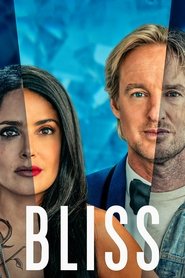 A mindbending love story following Greg...
A mindbending love story following Greg...Bliss 2021
A mind-bending love story following Greg who, after recently being divorced and then fired, meets the mysterious Isabel, a woman living on the streets and convinced that the polluted, broken world around them is just a computer simulation. Doubtful at first, Greg eventually discovers there may be some truth to Isabel’s wild conspiracy.
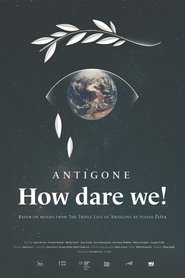 Based on motifs from The Triple...
Based on motifs from The Triple...Antigone, How Dare We! 2020
Based on motifs from The Triple Life of Antigone by Slavoj Žižek, this film reflects on today’s planet and political “chaos” by placing the politicians, the decision-makers and the influencers of today in the roles of Žižek’s version of the ancient Greek drama Antigone. But what are the politicians roles? Does the Antigone of today represent populists, anti-migrants and fundamentalists, or those who would oppose them?
 An hour long interview with Slovenian...
An hour long interview with Slovenian...Slavoj Žižek Birthday Special: Politics, Philosophy, and Hardcore Pornography 2019
An hour long interview with Slovenian philosopher Slavoj Žižek made by Russia Today for his 70th birthday. In this documentary Žižek answers questions from the public in regards to politics and ideology, gender and sex, philosophy and psychoanalysis, hardcore pornography and sexual liberation in the West, in his usual style of polemics and comedy.
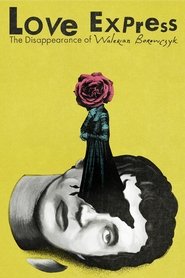 A documentary celebrating the work of...
A documentary celebrating the work of...Love Express. The Disappearance of Walerian Borowczyk 2018
A documentary celebrating the work of Walerian Borowczyk, a director of unparalleled sensitivity, revered in the 1970s, who was later labeled as a maker of erotic movies.
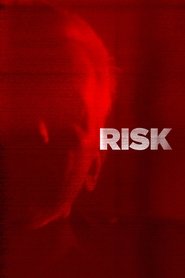 Capturing the story of WikiLeaks founder...
Capturing the story of WikiLeaks founder...Risk 2017
Capturing the story of WikiLeaks founder Julian Assange with unprecedented access, director Laura Poitras finds herself caught between the motives and contradictions of Assange and his inner circle in a documentary portrait of power, betrayal, truth and sacrifice.
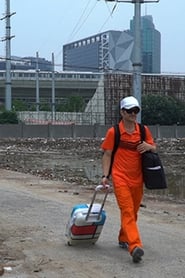 The Swap is the third chapter...
The Swap is the third chapter...The Swap 2016
The Swap is the third chapter of the PolEc Trilogy, comprising Wandering Marxwards (1998) and The Three Failures (2006). It features the same character as in the previous episodes, but now reduced to a lost, exhausted soul roaming Shanghai's cityscape from the remotest periphery to the financial district. Another narrative, spoken this one, takes us to September 2008, as gigantic bailouts put the financial system on life support instead of letting it collapse, thus seizing our reality and replacing it with a fiction tailored for the situation. These two streams end up meeting on a Shanghai dancefloor, where unresolved contradictions can finally be performed.
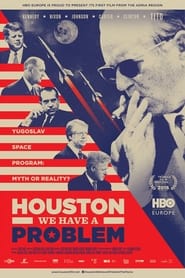 The cold war the space race...
The cold war the space race...Houston, We Have a Problem! 2016
The cold war, the space race, and NASA’s moon landing are landmark events that defined an era. But they are also fodder for conspiracy theories. In Houston, We Have a Problem! filmmaker Žiga Virc adds new material to the discussion on both fronts. This intriguing docu-fiction explores the myth of the secret multi-billion-dollar deal behind America’s purchase of Yugoslavia’s clandestine space program in the early 1960s.
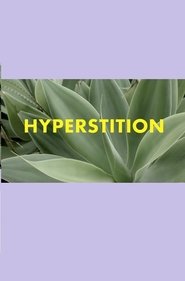 A film on time and narrative...
A film on time and narrative...Hyperstition 2015
A film on time and narrative by Christopher Roth with Armen Avanessian. Hyperstitional thinking hijacks the present-forming daring interventions into conditions of cybernetic governance that foreclose contingency.
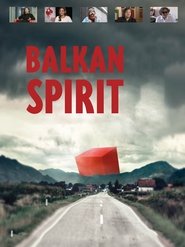 Filmmaker Hermann Vaske explores the creative...
Filmmaker Hermann Vaske explores the creative...Balkan Spirit 2013
Filmmaker Hermann Vaske explores the creative Balkan world in the hopes of understanding the meaning of "Balkan spirit".
 A journey into the labyrinthine heart...
A journey into the labyrinthine heart...The Pervert's Guide to Ideology 2012
A journey into the labyrinthine heart of ideology, which shapes and justifies both collective and personal beliefs and practices: with an infectious zeal and voracious appetite for popular culture, Slovenian philosopher and psychoanalyst Slavoj Žižek analyzes several of the most important films in the history of cinema to explain how cinematic narrative helps to reinforce prevailing ethics and political ideas.
 The creators of Debtocracy analyze the...
The creators of Debtocracy analyze the...Catastroika 2012
The creators of Debtocracy, analyze the shifting of state assets to private hands. They travel round the world gathering data on privatization and search for clues on the day after Greece's massive privatization program.
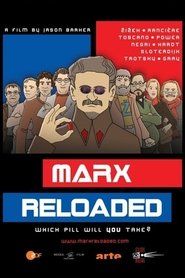 Marx Reloaded is a cultural documentary...
Marx Reloaded is a cultural documentary...Marx Reloaded 2011
Marx Reloaded is a cultural documentary that examines the relevance of German socialist and philosopher Karl Marx's ideas for understanding the global economic and financial crisis of 2008-09. The crisis triggered the deepest global recession in 70 years and prompted the US government to spend more than 1 trillion dollars in order to rescue its banking system from collapse. Today the full implications of the crisis in Europe and around the world still remain unclear. Nevertheless, should we accept the crisis as an unfortunate side-effect of the free market? Or is there another explanation as to why it happened and its likely effects on our society, our economy and our whole way of life?
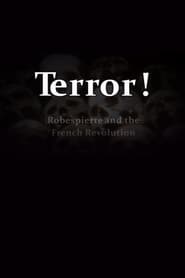 In 1794 French revolutionary Maximilien Robespierre produced...
In 1794 French revolutionary Maximilien Robespierre produced...Terror! Robespierre and the French Revolution 2009
In 1794, French revolutionary Maximilien Robespierre produced the world's first defense of "state terror" - claiming that the road to virtue lay through political violence. This film combines drama, archive and documentary interviews to examine Robespierre's year in charge of the Committee Of Public Safety - the powerful state machine at the heart of Revolutionary France. Contesting Robespierre's legacy is Slavoj Zizek, who argues that terror in the cause of virtue is justifiable, and Simon Schama, who believes the road from Robespierre ran straight to the gulag and the 20th-century concentration camp. The drama, based on original sources, follows the life-and-death politics of the Committee during "Year Two" of the new Republic.
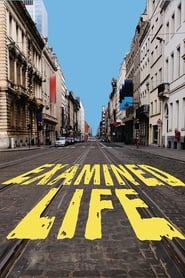 Examined Life pulls philosophy out of...
Examined Life pulls philosophy out of...Examined Life 2008
Examined Life pulls philosophy out of academic journals and classrooms, and puts it back on the streets. Offering privileged moments with great thinkers from fields ranging from moral philosophy to cultural theory, Examined Life reveals philosophy's power to transform the way we see the world around us and imagine our place in it.
 A hilarious introduction using as examples...
A hilarious introduction using as examples...The Pervert's Guide to Cinema 2006
A hilarious introduction, using as examples some of the best films ever made, to some of Slovenian philosopher and psychoanalyst Slavoj Žižek's most exciting ideas on personal subjectivity, fantasy and reality, desire and sexuality.
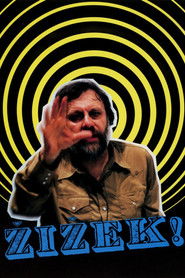 IEK trails the thinker as he...
IEK trails the thinker as he...Žižek! 2005
ŽIŽEK! trails the thinker as he crisscrosses the globe, racing from New York City lecture halls, through the streets of Buenos Aires, and even stopping at home in Ljubljana, Slovenia. All the while Žižek obsessively reveals the invisible workings of ideology through his unique blend of Lacanian psychoanalysis, Marxism, and critique of pop culture.
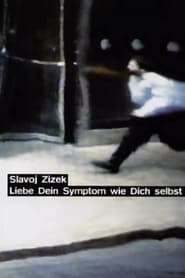 Slavoj Zizek born in 1949 in Ljubljana...
Slavoj Zizek born in 1949 in Ljubljana...Thou Shalt Love thy Symptom as Thyself 1996
Slavoj Zizek, born in 1949 in Ljubljana, psychoanalyst and professor of philosophy, started early on a group of theoreticians who sharpened their thinking of the theses of Jacques Lacan. The Slovenian Lacan School was a spiritual resistance nest in orthodox ex-Yugoslavia, and Slavoj Zizek emerged as a globally operating philosopher-entertainer.
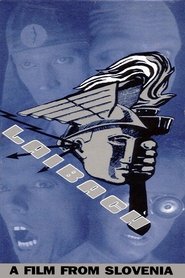 In the video film shots from...
In the video film shots from...Laibach – A Film from Slovenia 1993
In the video film shots from the tour are interspersed with acted scenes, video clips and theoretical reflections of Slavoj Žižek and critic Chris Bohn. Together they form a compelling story about Laibach, controversial Slovene music group in the eighties.
